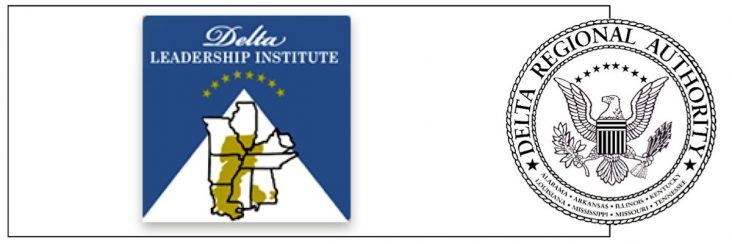Nine Arkansans graduate year-long Delta leadership program
by August 11, 2016 10:51 am 228 views

Fifty-three leaders from eight states, including nine from Arkansas, graduated from the Delta Leadership Institute Executive Academy, a year-long leadership program that prepares them to address issues in the Mississippi Delta region.
The Executive Academy is offered by the Delta Regional Authority, a federal government program serving 252 counties in the Delta, a historically poor region with a population of 10 million. The seven other states represented were Alabama, Illinois, Kentucky, Louisiana, Mississippi, Missouri and Tennessee. This was the 11th Academy class.
Mike Marshall, Delta Regional Authority alternative federal co-chairman, encouraged the graduates to think regionally because the federal government can’t solve all problems, and state budgets are tight.
The members meet six times a year to discuss public health, education, transportation, small business and entrepreneurship, workforce training, and economic development. They were nominated by their state’s governors and the Delta Regional Authority’s federal co-chairman, Chris Masingill of Arkansas.
In a keynote address to the graduates, Gov. Asa Hutchinson touted Arkansas’ 3.8% unemployment rate, the state’s lowest in history.
“We are really moving our state and our regions in the right direction,” he said. “We’re creating jobs. We’re learning how to do this. We’re learning how to work on the global stage, and it’s coming together, and I’ve never been more optimistic about Arkansas. I’ve never been more optimistic about the Delta and the opportunities there.”
Hutchinson referenced a recent report of the American Medical Association that showing health care gains made by Arkansas and Kentucky, two states that had expanded their Medicaid populations under the Affordable Care Act. The study showed major improvements in primary care access, affordability, utilization of preventive services, care for chronic conditions, and a decline in emergency room visits. Hutchinson said the question is affordability.
“That’s the challenge that we’re looking at in Arkansas is, clearly the case has been made that improved access in health care produces really good results and moves your state and your health care in the right direction, but there’s a cost impact to it, both the federal government and to our states,” he said.
He touted his mandate that computer coding be offered in every Arkansas high school.
“If you can provide broadband access to the internet along with computer coding skills, the next Bill Gates can come from any small town in Arkansas, Kentucky, Missouri or any of our regions,” he said. “And to me that’s so exciting. There’s no limitations. And I always have the saying, if you can have access to the internet, you can run the world from Arkansas.”
The Academy is supported by Arkansas State University, the University of Louisiana at Monroe, and the University of Alabama.
Arkansas graduates were Andrea Allen, Bevin Hunter, Spencer Lucker, Robert Moery, Abby Olivier, Trudy Redus, Jessica DeLoach Sabin, Wes Ward, and Peggy Robinson Wright.
